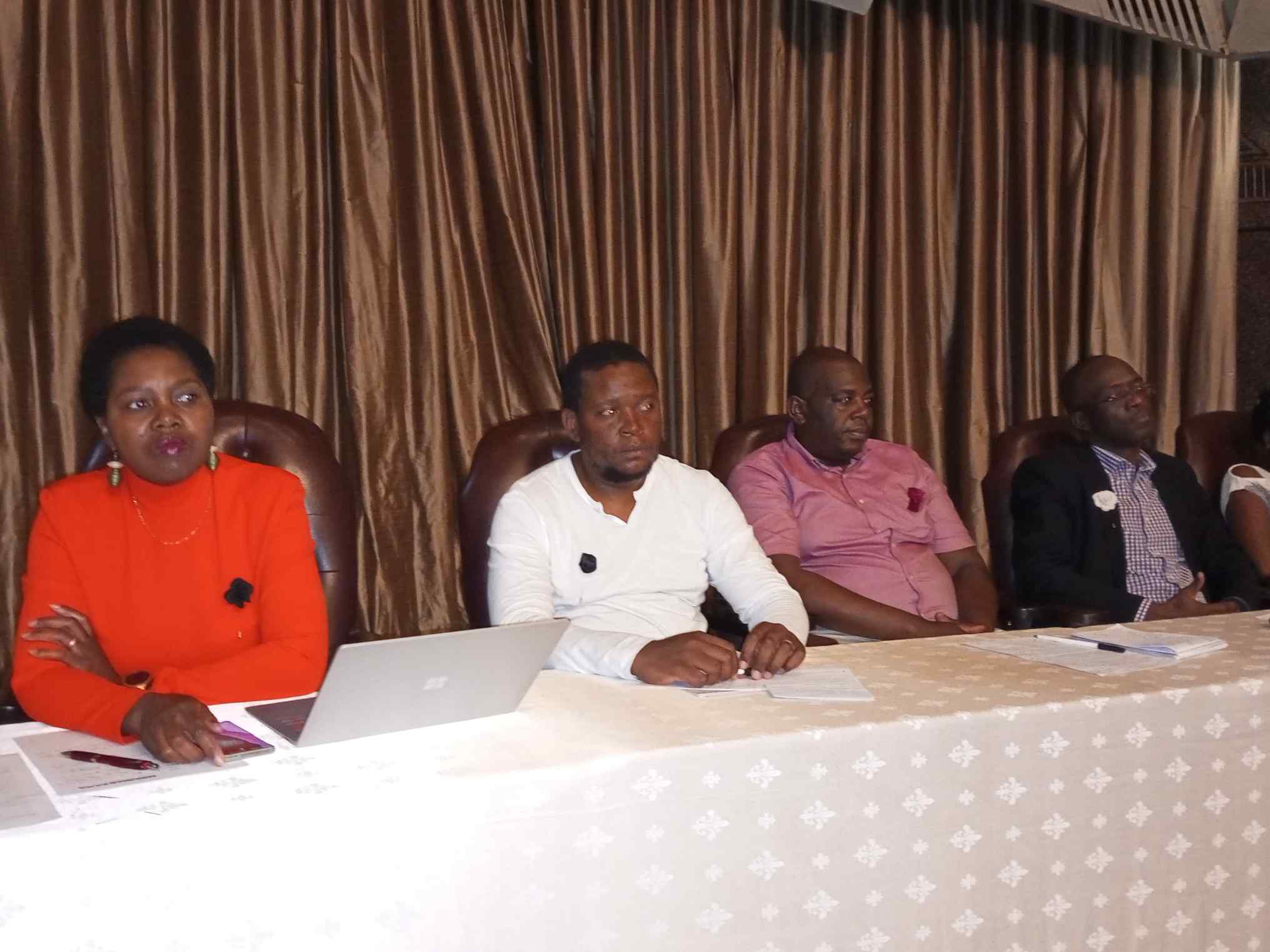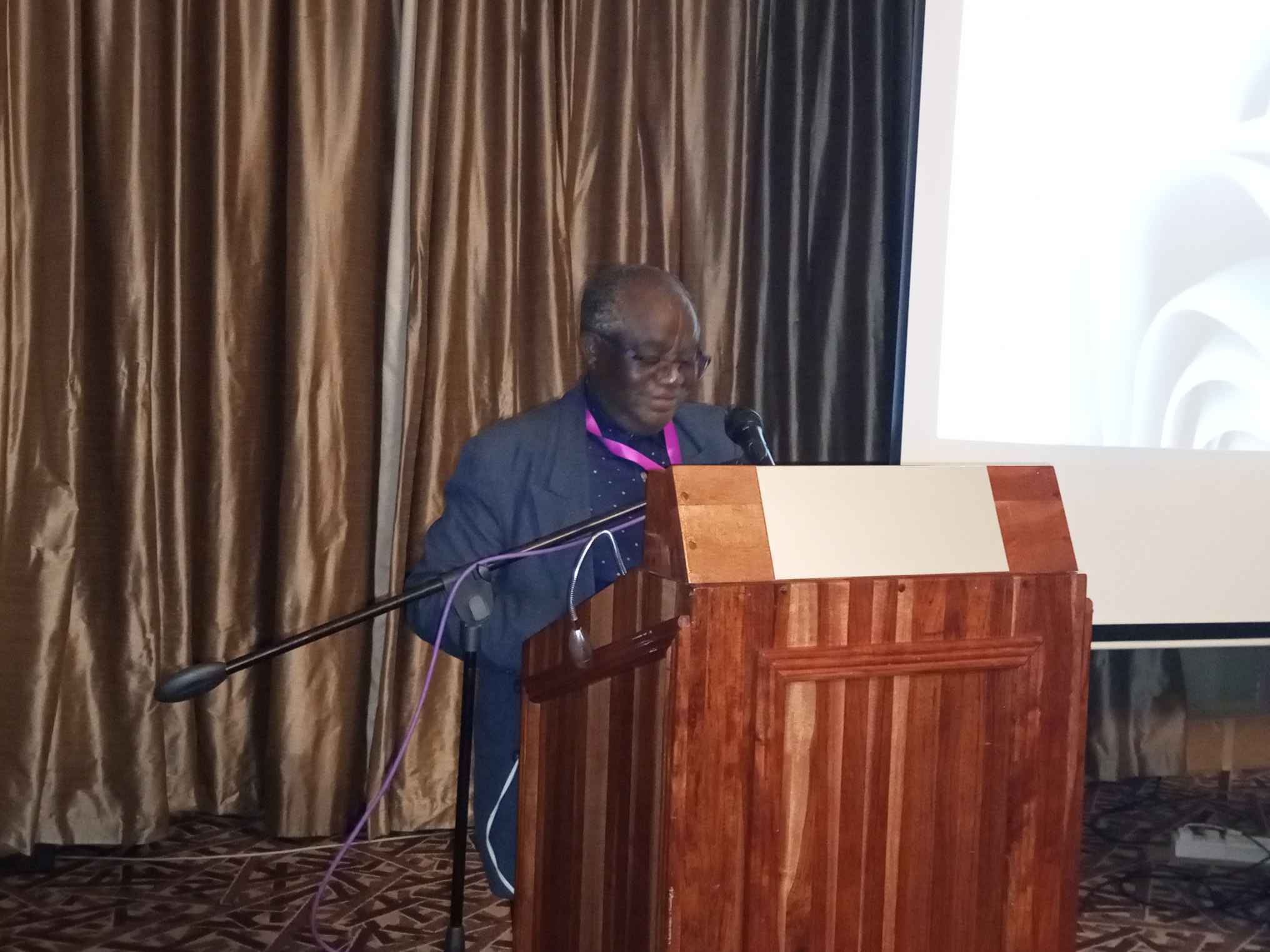|
Getting your Trinity Audio player ready…
|
Reducing health disparities requires a complex system approach that puts communities at the heart of everything we do, including research, Vice President and Minister of Health and Child Care, Dr. Constantino Chiwenga has said.
He made the remarks today at the Health Research Forum hosted by the Medical Research Council of Zimbabwe (MRCZ) in Harare today in a speech delivered on his behalf by Dr. Wenceslas Nyamayaro, the Director of Non-Communicable Diseases in the Ministry of Health and Child Care.
“There is an increasing recognition that reducing health disparities requires a complex system approach that puts communities at the heart of everything we do, including research. This can be achieved through community involvement/engagement and developing community roles in research. There is a need to develop long-term relationships with communities in order to build trust.
“Zimbabwe’s ambitious vision to become an upper-middle-income country by the year 2030 requires a strong research and development component that is guided by a well-thought research strategy. The current National Development Strategy
(NDS 1: 2021-2025), the blueprint for the required transformation places research and innovation at the top of priorities,” VP Chiwenga said.
VP Chiwenga said research and development can promote innovation, entrepreneurship, equitable development, and prosperity for all. Zimbabwe’s constitution recognizes health as a fundamental human right and improved health as central to human happiness, well-being, and economic progress.
He said research and development are urgently required to address new and old problems. In that realm, novel and resurgent epidemics, including COVID-19, measles, and even polio, have shown that while international support and collaboration are necessary, home-grown solutions for local problems are urgently needed. Research and innovation are important to restore and maintain the national Health System and utilize the country’s competitive edge. A developed research sector will entail a skilled, knowledgeable, and professional health workforce, firm foundations for primary health and hospital care, and improved quality of public health outcomes.
The VP said there is much to be gained from sharing lessons learned about how to do this well: what works, what doesn’t, and what the impact is. He reiterated that the Ministry of Health and Child Care is committed to supporting community engagement and involvement at all costs, thereby creating more resilient communities as part of the wider disease prevention agenda.
VP Chiwenga told stakeholders that there is commitment at the highest level to fund research from government resources. He assured participants that health research will receive adequate attention at the presidium level.
“Guided by the Constitution and Research Act, there is a commitment to set aside at least 1% of the national budget for research. This is a good practice that is observed in many developed countries. We do not want to be behind.”
Innovations from research are required to produce health-related products and services that respond to pandemics. It can be malaria, HIV, Tuberculosis, mental health, or childhood illnesses, innovations from research are necessary.
“Today, we have an opportunity to discuss various issues relating to putting communities at the centre of health research. We rely on our communities to drive the research agenda and not vice versa. projects promote health and well-being across the whole of life (from maternity to end-of-life). They should be directed by communities rather than researchers, ensuring the research projects address the issues that communities consider to be the most important for improving their quality of life,” he added.
Prof Charles Nhachi, the MRCZ Chairman said the forum discussed ethics in health research.
“We are reviewing all research work in the past year. This is the national ethical committee for health research in Zimbabwe. It’s a meeting of researchers, legislators, institutions of higher learning, and community advisory board members. We are discussing challenges regarding ethics based on justice, beneficence, and respect. These are 3 main fundamentals for consideration where we say researchers should treat vulnerable people the same way as the able-bodied.
“When researching children and prisoners who have diminished rights, we should respect them and give them enough information to make decisions. There should be no shortcuts when researching. Researchers should select participants in a just, unbiased way and must consider the benefits for the community that arises from research,” Prof Nhachi said.
Speakers including Prof K Kranzer (A Clinical Microbiologist and Professor of Infectious Disease Epidemiology); Mr. Tapiwa Kujinga – A lawyer and Director of the Pan-African Treatment Access Movement (PATAM) were unanimous that it is important for communities to fully participate in the decision-making process (from concept paper to results dissemination).

They emphasised that research decisions in health cannot be made without the community’s consultation and involvement. This is a critical component that makes communities well-informed to know about research, and about what to be done in their communities.
This ensures full community participation and research product compliance in the case of clinical trials. Reporting any serious adverse events due to study products is also made easier than when the community is in the dark.
They added that the research agenda should not be imposed on communities since they are not the weakest link in the research process, and as such, they are not supposed to be exploited and left behind.
